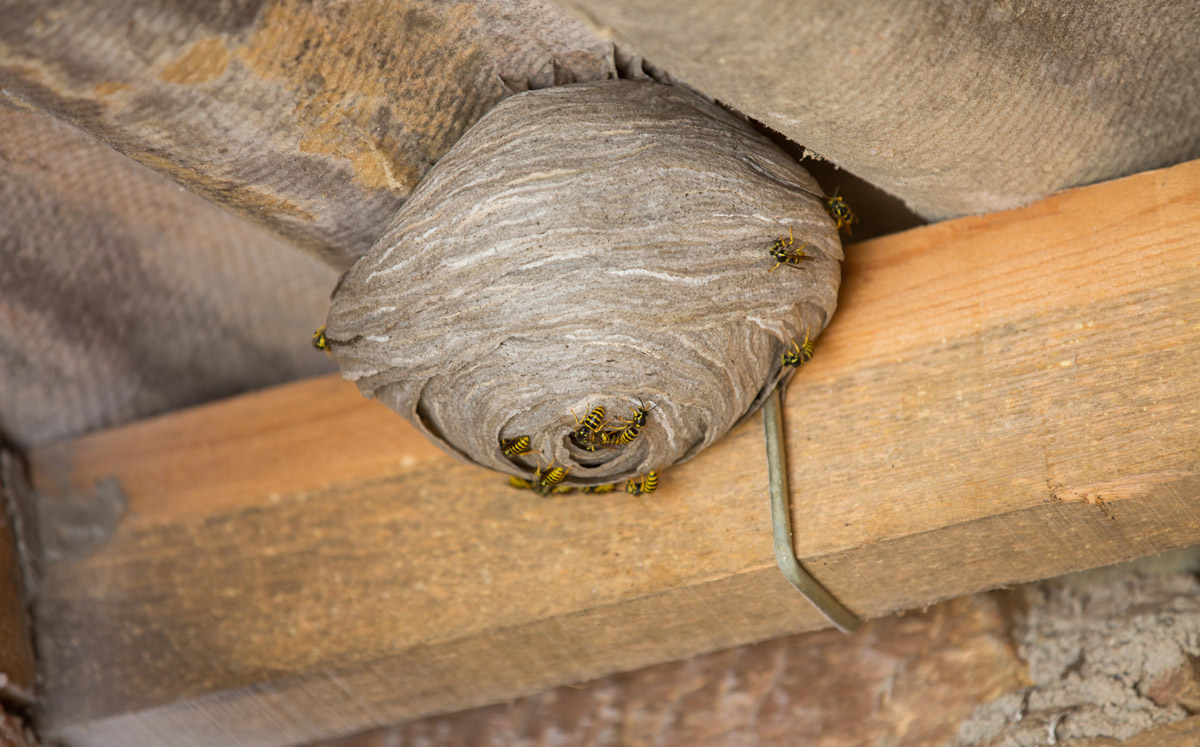2025
Comprehensive Guide to Wasp Control and Safety Tips

Nothing ruins a summer day quite like the presence of wasps. These aggressive insects will often gather when there is food or drink present and can deliver quite painful stings when agitated, which unfortunately happens quite easily especially in late summer and early fall. In today’s blog we will be providing you with a comprehensive guide to wasp control as well as some tips to keep you and your family safe when wasps are present.
Identifying Wasps
One important element of dealing with wasps is knowing the difference between wasps and bees. Wasps have yellow, red, black or brownish markings and have slender hairless bodies, bees on the other hand tend to be rounder and hairier to benefit their role as pollinators. Wasps tend not to be as aggressive in spring and early summer, only getting really aggressive in late summer and fall when they have to search for more food. Bees are usually non-aggressive and rarely sting unless directly provoked. Wasp nests tend to be papery and also tend to be built in sheltered areas like underground, inside sheds, under eaves and under decks. Bee hives by contrast are waxy and tend to be built either underground or high up.
What attracts wasps?
Human food waste is a major wasp attractant, causing them to frequently be present around garbage cans, gatherings or recycling bins. This waste tends to provide a dual benefit of offering sugary, decaying food and attracting other insects that the wasps can prey on. Wasps can also be attracted by the sweet smells of brightly colored flowers and fruiting plants.
Determining if you have an Infestation
The presence of multiple wasps in your yard likely indicates the presence of a nearby nest. Look for evidence of chewed wood on fences, decks or wooden furniture as wasps use chewed wood pulp to build their nests. Hidden wasp nests can be detected by following the flight paths of worker wasps or listening for buzzing activity in areas where you think there might be a nest. The presence of dead wasps or dead insects may indicate that wasps are hunting around your home.
Preventing Infestation
Keep foliage regularly trimmed to eliminate or reduce the nesting sites available to wasps. Store food in sealable containers and clean up any spills or food waste as soon as possible to minimize food sources available to wasps. Store can and bottle recycling inside, so the remnants of sweet liquids don’t attract wasps and provide them with a source of food. Keep garbage in a container with a tight-fitting lid to keep wasps and other insects out. You can also put up a fake wasp nest as wasps are very territorial and often won’t build where other nests are present.
How to minimize wasp stings
Avoid the use of heavily scented soaps, perfume or deodorants, avoid wearing bright colors and floral patterns, avoid going barefoot in weedy or grassy areas and keep food and drinks covered when unattended.
Dealing with a Wasp Infestation
Minor wasp issues can be dealt with by setting up either homemade or store-bought wasp traps. These usually work by luring the wasps in with a sweet liquid, they will then crawl into the trap through small openings but then be unable to fly out, causing them to eventually drown in the liquid. You can also use a soap and water solution or commercially available wasp spray to spray small nests directly though this is a riskier approach as you risk contact with wasps. If you think you have a large nest or several nests on your property, the best way to deal with it is to contact a professional extermination service. This will both eliminate your existing wasp woes and help prevent future wasp infestations.
We hope we have been able to provide you with some helpful information and safe tips for controlling wasp infestations on your property. If you require professional extermination services, please feel free to contact us.
Gilpin’s Pest Control is a family-owned business operating on the Lower Mainland in Greater Vancouver and the BC Interior including Kamloops, Revelstoke, and Sicamous. After 35 years in the business, we do a stellar job and are proud of our rapid response time.
If you have any questions about this article or you would like to talk to us about pest control needs, please call us toll-free at (800) 770-2428.
